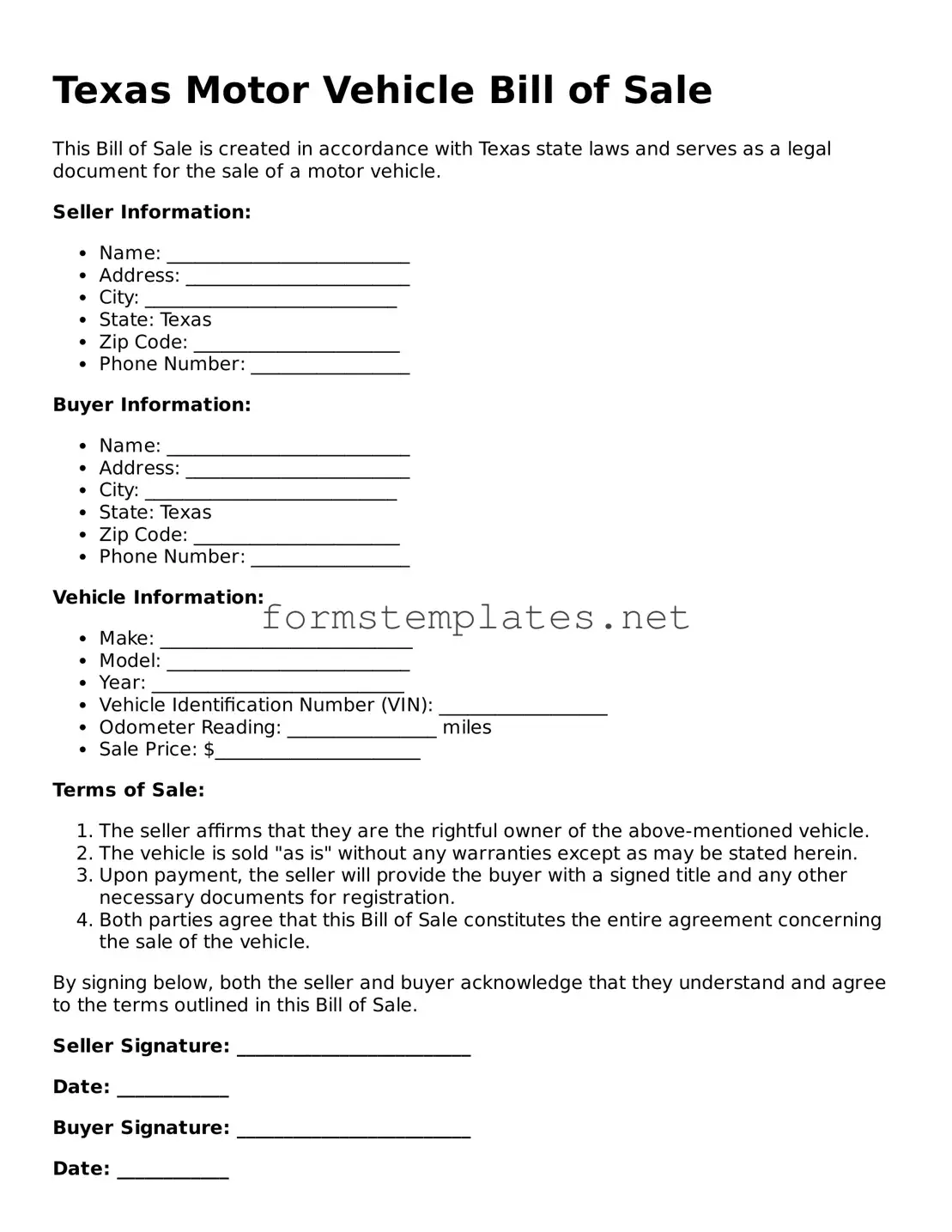Attorney-Approved Texas Motor Vehicle Bill of Sale Template
The Texas Motor Vehicle Bill of Sale form is a legal document that records the sale of a vehicle between a buyer and a seller in Texas. This form provides essential details about the transaction, such as the vehicle's identification number, sale price, and the parties involved. Completing this form helps protect both the buyer and seller by ensuring a clear record of the transfer of ownership.
Open Editor Now

Attorney-Approved Texas Motor Vehicle Bill of Sale Template
Open Editor Now

Open Editor Now
or
⇓ PDF Form
Your form still needs attention
Finalize Motor Vehicle Bill of Sale online — simple edits, saving, and download.